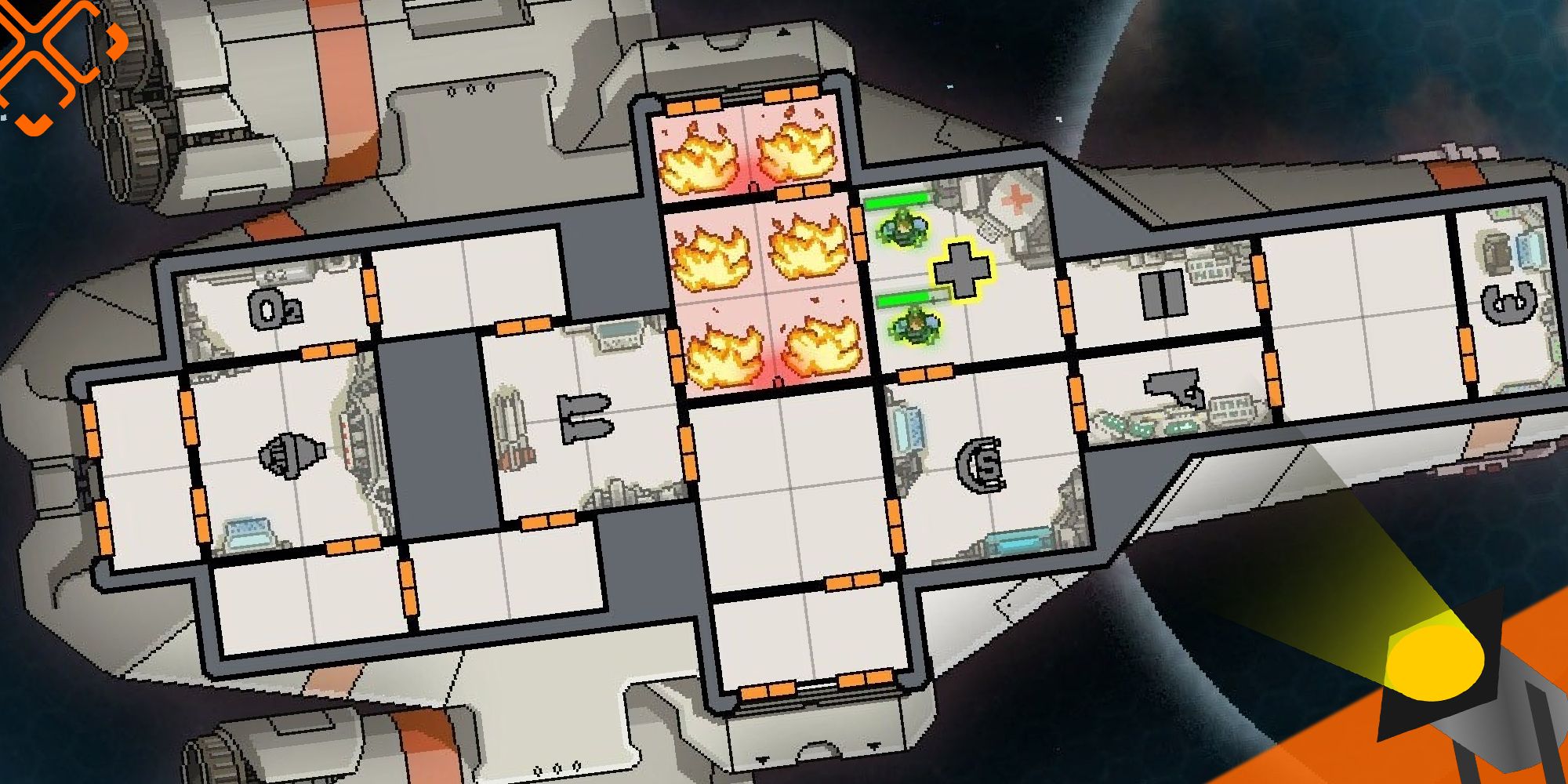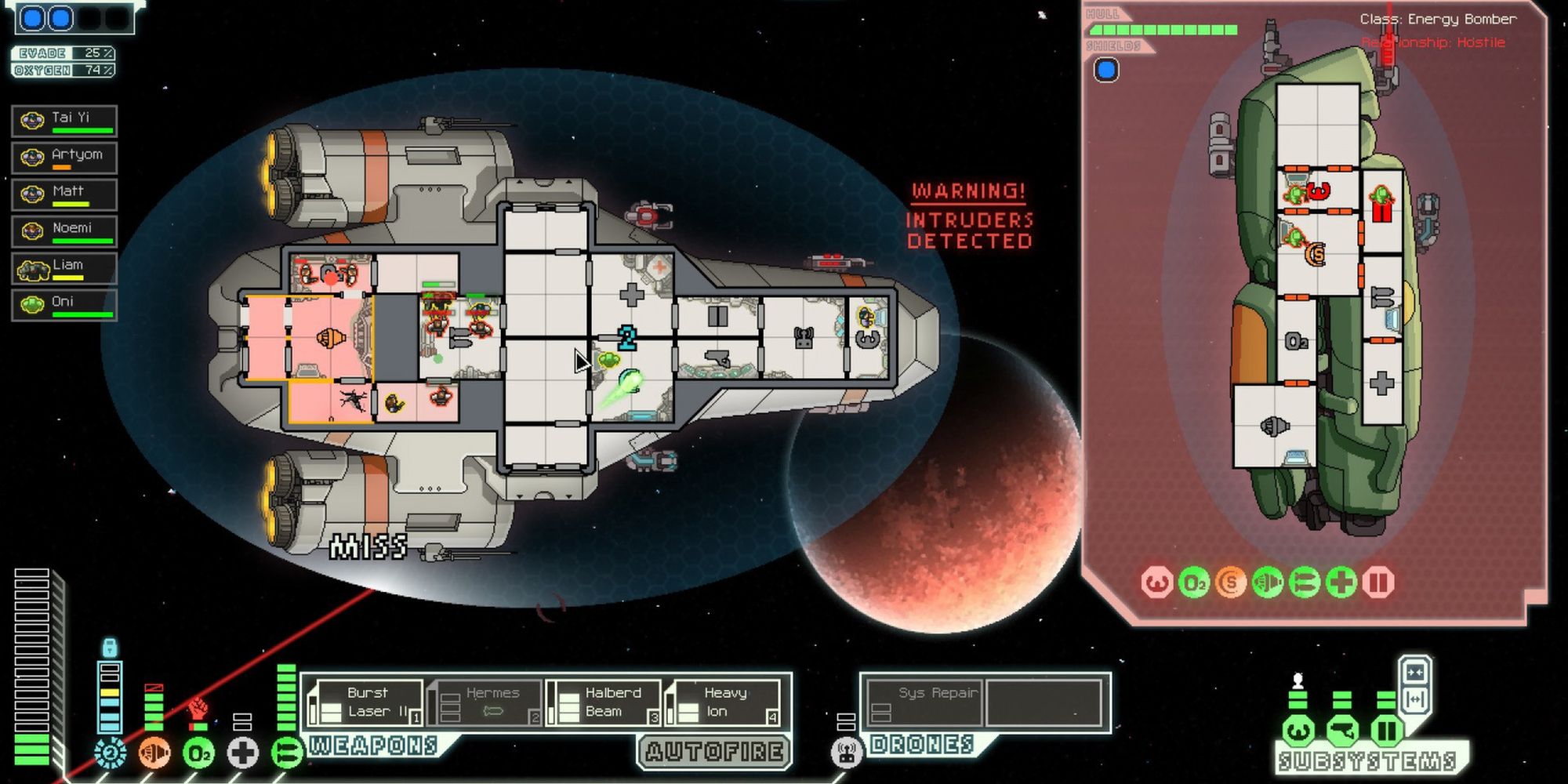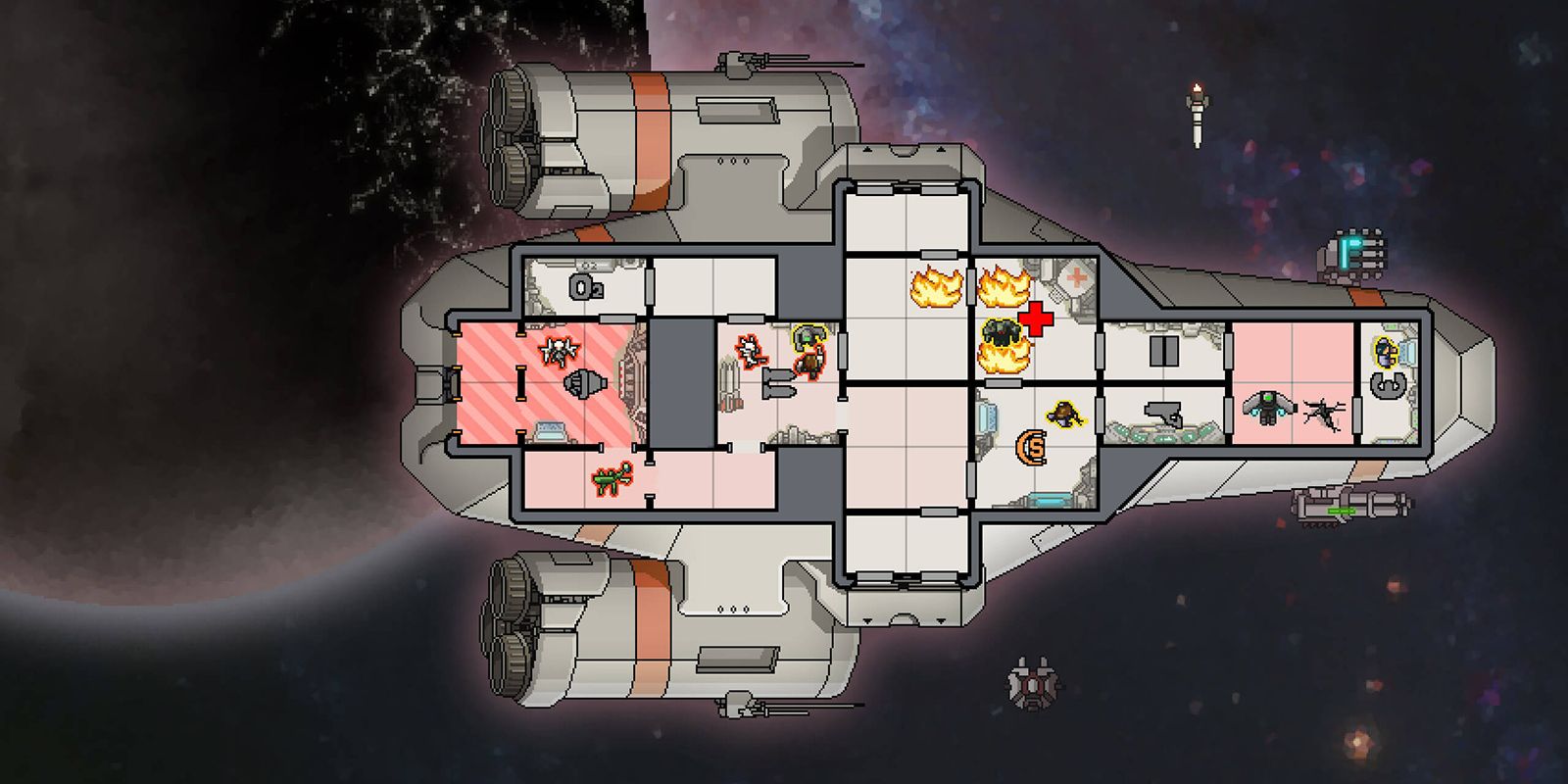FTL: Faster Than Light is an indie space-faring roguelite that’s light on story and heavy on difficulty. You’re tasked with managing a small crew in an underequipped ship as they flee across the galaxy away from the advancing rebel threat. I never really understood why the federation were the weaklings and the rebels were the superior military force armed to the teeth, but as I said, light on story.
Developed by two-man team Subset Games, FTL is my most played game on Steam. I’m not going to write down how many hours, because it’s quite frankly embarrassing, but it’s a lot. It might seem weird that a game with very little narrative has such great replay value, but it’s the precise reason it does. FTL is at its best when you’re using it to tell your own stories, living out your Star Trek fantasies while flying throughout space.
I’ve played it so many times that I know how I like to set up my stories now. I pick a ship, name the crew after me and my friends, and create little backstories for each of us. Will we be benevolent mind-reading slugs, helping all those we can? Or perhaps we’ll be rampaging Mantis warriors, teleporting aboard ships and stripping them of flesh and metal alike. Maybe himbo rock people, just bumbling along and doing whatever we please. Either way, once I lock in a backstory, that’s it, no deviating from my predetermined moral compass until the run in question comes to an end.
It may seem a bit rigid, but I try to force myself into problems as often as I can. It may be easier to avoid a fight or decide not to help another crew, but that’s boring. I don’t care about winning, I want to tell an interesting story, having to overcome obstacles due to the intrinsic nature of my crew aids that goal. My ship might become dangerously damaged in a fight, or we’ll lose our engineer because they tried to put out a fire on a space station. It adds tension and makes my personal narratives far more exciting to weave together.
As I progress through the game and more people come aboard my ship, I create romances, friendships, rivalries, anything really. The interpersonal drama I think up in my head makes every near-death experience much more serious. It’s how I explain my pilot not dodging or my gunner missing a crucial shot. They may be grieving the loss of a loved one or angry their friend died instead of someone they dislike. Imbuing the little pixels with emotion makes the game feel like more than stats and figures.
The rougelite elements of FTL mean that even with the same backstory and crew, every journey is going to be different. Once I had a mantis crew that had to position themselves carefully to avoid bombs, another time a rock person joined and made my fire laser/teleportation combo even more deadly. Another time I had a logical Engi crew have an emotional human come aboard and threw their plans completely out of whack. She was the wildcard that meant this time, the crew could deviate from their set morals - but only when that would lead to more chaos than taking the logical route.
Often I’ll write down what’s going on. I love this as a method for creating sci-fi stories because there’s a lot that’s out of my control. I may get my arse kicked by a powerful ship, or lose my favourite character, or the one who seemed like the protagonist. It forces me to improvise, adapt, overcome, and it’s immensely satisfying to create short pieces that help me practise and figure out what works and what doesn’t. I wouldn’t be able to do this if the game had a rigid narrative path that had to be followed.
What’s great about using FTL to tell these kinds of stories as opposed to No Man’s Sky or Elite Dangerous is how often runs actually finish. Unmodded, the game has an end, but with the Captain’s Edition mod you can carry on indefinitely, It really ups the difficulty, however, so runs still end, usually in fiery defiance. This makes writing them up less daunting which means I’m actually getting words onto paper more.
In some games, it’s obvious you have to tell your own story. The Sims is the prime example. But FTL feels like it slipped under the radar for this type of headcanon. All you need are a few blank slates, a spaceship, and the infinite cosmos at your fingertips - the stories practically write themselves.



